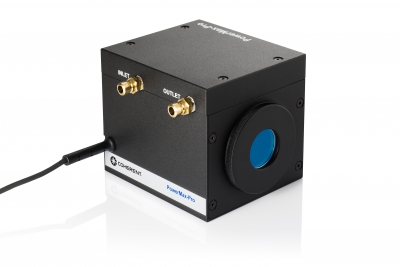
Coherent Inc. has extended its series of large-area, high-speed, PowerMax-Pro laser detectors to enable power measurement of continuous-wave laser beams of 3 kW, and 5 kW peak power with modulated laser beams. PowerMax-Pro detectors, first introduced in 2014 and based on Coherent’s proprietary thin film sensor technology, combines the broad wavelength sensitivity, dynamic range and laser damage resistance of a thermopile, with the response speed of a semiconductor photodiode.
The new PowerMax-Pro kW models will be particularly useful for materials processing applications based on high-power fiber lasers, CO2 lasers and solid state lasers, including welding, cutting, drilling and engraving. Traditional thermopile detectors typically take at least 60 seconds to deliver a stable kilowatt power reading, according to the company. PowerMax-Pro accomplishes this measurement within microseconds with no overshoot. This delivers a significant time savings for engineers, production and QA staff, and enables improved process monitoring and increased process throughput when these detectors are built into systems.
Another important aspect of kilowatt class power measurements involves back reflections from the detector. Traditional thermopiles can reflect 10-15 percent of the incident laser light back towards the source. This introduces a significant possibility of laser damage to system components and is a major consideration when designing a measurement setup. The PowerMax-Pro kW sensor’s unique optical design traps >99 percent of the incident light inside the enclosure, eliminating this problem. And when used with a direct QBH fiber adapter option, 100 percent of the incident light is captured, resulting in a Class 1 measurement system.
Contact Details
Related Glossary Terms
- overshoot
overshoot
Deviation from nominal path caused by momentum carried over from previous step, as when a tool is rapidly traversed a considerable distance to begin a cut. Usually applies to CNC machining and is prevented if the control has the appropriate look-ahead capability. See look-ahead; undershoot.






